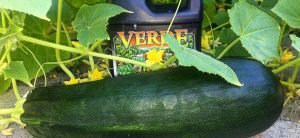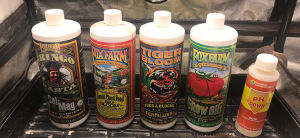HGV Premium Plant Nutrients
Why HGV? They aren’t like other fertilizer companies. Their fertilizers stand on their own containing all the essential elements needed for healthy plant growth without the need for expensive “additives”.
Fertilizer Formulations
HGV is formulated for the correct balance between all the elements. Many elements are antagonistic of one another, meaning that high levels of a particular nutrient in the soil can interfere with the availability and uptake of other nutrients. By using “boosters” or “additives” you are throwing off the delicate balance between each element that has been carefully calculated and proven to provide superior results.
They also source the highest quality raw materials. We have tested every form of N (nitrogen), P (phosphorus), K (potassium), as well as secondary and trace elements, and only use what has given the best results time after time in our own commercial facilities. No Ammoniacal or Urea products are ever used. While we could make a lower-cost product, that is not our focus. Quality is always at the top of their list, and it should be at the top of yours as well.
Continue reading















